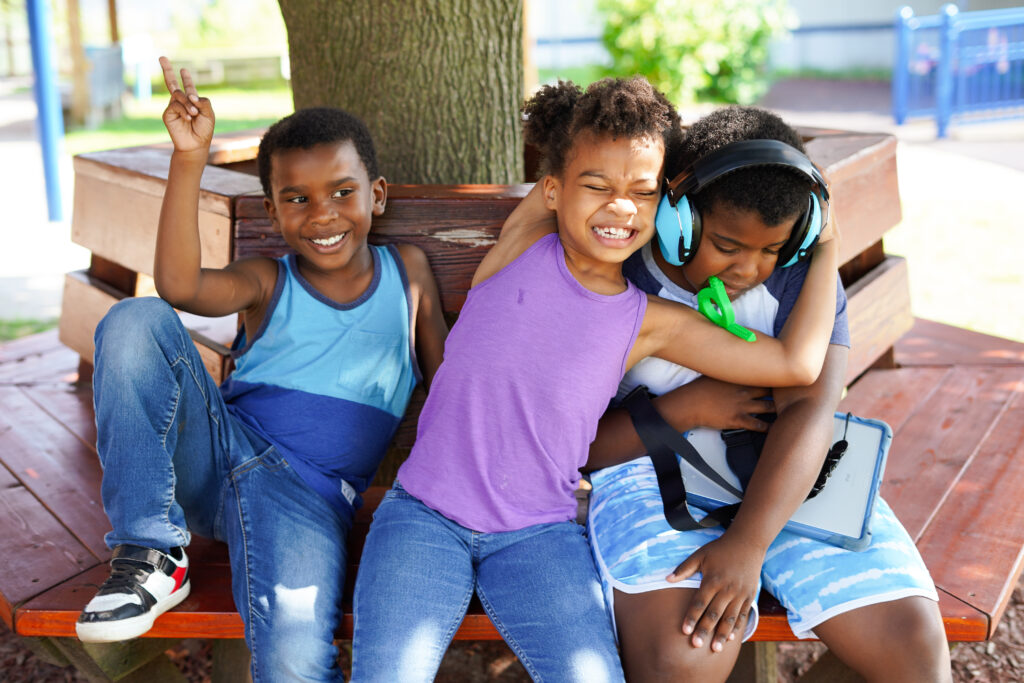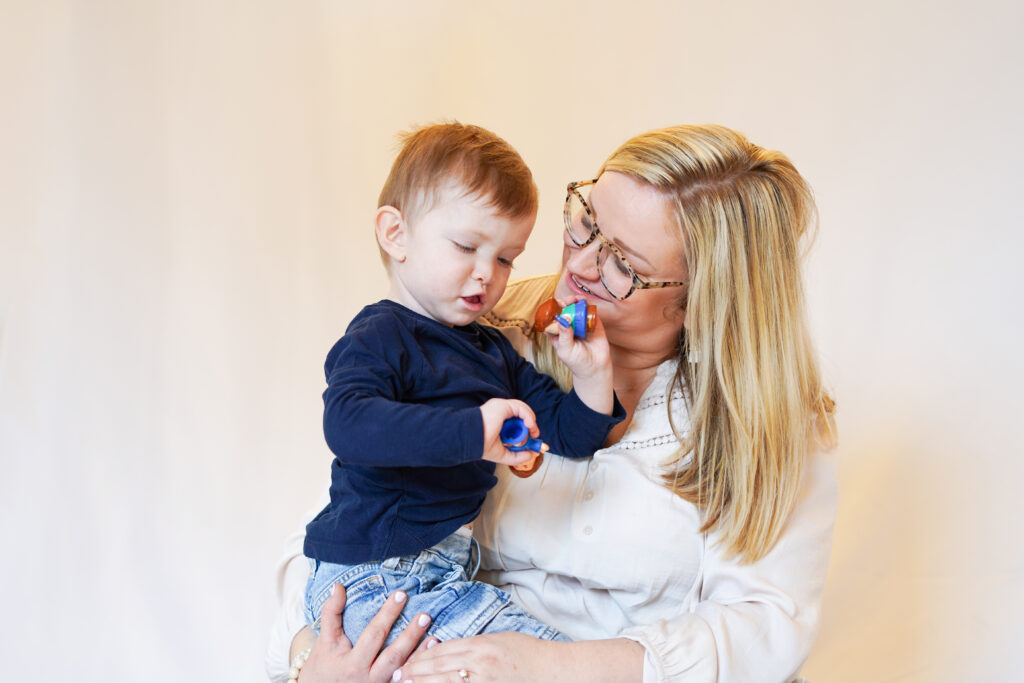Written by Grandview Kids Occupational Therapist, Samantha M.
In the last few years, there has been a lot of “buzz” around this term interoception, the role it plays with regulation skills, and how it may impact our Neurodivergent community.
What is interoception?
Interoception is our sense responsible for noticing feelings in our body. By feelings, I don’t just mean emotions like happy or sad. Feelings include hunger, thirst, being cold or hot, or having to use the washroom. Interoception helps us answer the question: “How do I feel?”

Our feelings are really just a formula of things that happen in our body, like:
- Stomach growling + cranky = hungry
- Heart racing + palms sweaty + feeling sick to the stomach = nervous
Our interoceptive system must notice those internal body cues, such as “stomach growling” and “cranky,” and figure out what feeling they are connected to. This is known as interoceptive awareness. Everyone’s formulas are unique, as we all experience things in our bodies a little differently.

It sounds easy, but for many Neurodivergent folks this can be a challenge. They may be too aware of these sensations or may miss them entirely.
Interoception and self-regulation
The term “self-regulation” refers to a person’s ability to understand and manage their own behaviour, as well as their reactions to feelings and the things happening around them.
Someone who has a hard time understanding their feelings (i.e., challenges with interoceptive processing) will have difficulty with self-regulation. This is because they may miss when their body starts to have a tough time coping with the situation or environment (i.e., dysregulates). It is impossible to use coping strategies to self-regulation when you cannot feel when you need to use them (i.e., when you are starting to dysregulate).
Supporting interoceptive awareness at home
Good news! Research shows there are ways you can help improve interoceptive awareness (Hample et al., 2020; Mahler et al., 2022).
There are two simple strategies you can use in your daily routines with your child:
- Interoception Talk: talk about how your body parts feel during activities and routines. For example, “My lips feel cold when I drink from my water bottle; My hands feel wet when I wash them; My heart feels like it’s racing when I chase you.”
- Interoception Attention: encourage your child to pay attention or notice how their body parts feel during activities and routines. For example, “How does your mouth feel when you eat ice cream?; How do your hands feel when I hold them?; Look at how fast your chest is moving when you run; Put your hand on your chest to feel how fast it is moving.”
Note: Your child does not have to answer any of the questions you ask. The goal is for them to shift their focus in towards their body, not answer the question.

Conclusion
Interoception is a complicated sense that helps us understand what is happening in our body. If you suspect your child is having difficulty with interoceptive awareness, using the strategies above is a no-risk way of helping your child learn more about what is happening in their body.
References and Sources
Hample, K., Mahler, K., & Amspacher, A. (2020). An interoception-based intervention for children with autism spectrum disorder: a pilot study. Journal of Occupational Therapy, Schools, & Early Intervention, 13(4), 339-352.
Mahler, K. (2021, May 17). What is Interoception? Kelly Mahler. https://www.kelly-mahler.com/what-is-interoception/
Mahler, K. (2023, April 12). Interoceptive awareness: an important consideration for neurodivergent clients. Kelly Mahler. https://www.kelly-mahler.com/what-is-interoception/interoception-and-neurodiversity/
Mahler, K., Hample, K., Jones, C., Sensenig, J., Thomasco, P., & Hilton, C. (2022). Impact of an Interoception-Based Program on Emotion Regulation in Autistic Children. Occupational therapy international, 2022.
Additional Resources Kelly Mahler’s Printable Resources on Interoception: https://www.kelly-mahler.com/printable-resources/
Check out more Grandview Kids articles
- Celebrating Ahaana: Finding sound, strength and community on Cochlear Implant Day
- Navigating the intersection of disability and race as a caregiver: Honouring Black History Month
- Embracing hope through every challenge: Brock’s journey
- Jack’s resilience shines through every step: Rare Disease Day
- February: Dates of Significance
